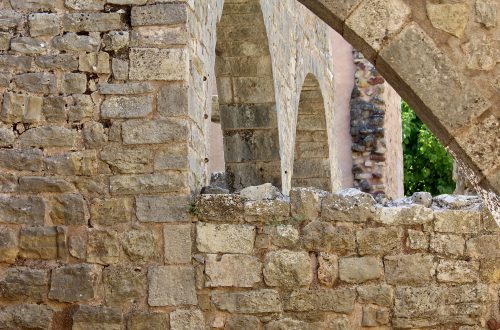Stoïcijnse filosofie in de gezondheidszorg / Stoicism in Medical practice
Afgelopen zomer heb ik mij verdiept in de Stoïcijnse filosofie.
De Stoïcijnse filosofie presenteert zichzelf als de aangewezen weg om de mens gelukkig te maken. Alles wat gebeurt in de wereld is volgens de Stoa van tevoren onverbiddelijk bepaald, maar de vrijheid en autonomie van de mens zit hem erin dat hij vrij is in zijn reactie hierop. Deze reactie is bepalend voor het menselijk geluk. Inzicht in de noodzakelijkheid van alles, inzicht dat dit zo goed is, enerzijds; anderzijds het inzicht dat hetgeen men gewoonlijk als persoonlijke rampen ziet, ons niet echt raakt, als we maar goed onderscheiden wat er echt aan de hand is.
Er zit evenwel ook een moreel aspect aan vast. Een stoïcijn wordt geacht ook zijn sociale plichten te vervullen. Dit wordt gezien als een natuurlijk bestanddeel van het leven in de menselijke gemeenschap. Want ook het leven in overeenstemming met de natuur wordt als doel geformuleerd door de Stoa.
Ik las stukken van Aurelius en ik las Epictetus over de filosofie van de veerkracht. Volgens hem ontstaat veel leed door twee menselijke misvattingen: we proberen volledige controle uit te oefenen over gebeurtenissen buiten ons, bijvoorbeeld ons lichaam. En als ons dat niet lukt voelen we ons machteloos, boos, bang. Maar we vinden het lastig verantwoordelijkheid te nemen over onze gedachten en opvattingen. En daar kunnen we juist wel invloed op uitoefenen. We bezitten kracht om zelf te kiezen voor onze reacties, ook in situaties waarin we weinig invloed hebben….geef mij de kalmte die dingen te aanvaarden die ik niet kan veranderen, en de moed om de dingen te veranderen die ik kan veranderen..en de wijsheid het verschil daartussen te kennen…aldus de Serenity Prayer!
Vandaag publiceerde een van de stoïcijnen, Roberto Sans-Boza, het volgende blog over wat Stoïcijnse filosofie voor invloed heeft gehad op zijn rol als arts.
======
I recently developed an interest in Stoic philosophy as a very practical, logical and principled way of life. It has become important to me, both in my personal life, and, more importantly, in my professional life. I work in a largely diagnostic speciality, and every day I have to confront severe diagnostic dilemmas. In this article, I reflect on how Stoicism has helped inform how I go about medical practice.
As I started using Stoic philosophy in my life, I tried to find some time each morning to plan my day and to reflect on certain philosophical principles. As I did this on the bus to work, I started to reflect on how little value I had put on my job as a way of becoming a better person. In particular, I asked myself this question: “What judgement would I pass on my medical career as a whole if today were the last day of my job?” In doing this, I realized that, rather than taking a big-picture view of how to be a ‘good doctor’, I had focussed too much on the day-to-day experience of life, on the ‘immediate’ as it were. The overall purpose of what I was doing had got lost, obscured by all the details. From this, I also came to appreciate that one is not necessarily a good judge of oneself. Even though, through the last 20 years of my work, there was a clear pattern of professional expertise and dedication, my focus had nevertheless remained one of ‘surviving’ each day’s challenges. In contrast, Stoicism led me to the realisation that I needed to find a more profound sense of inner satisfaction in my job instead of considering it just one of life’s “necessary evils” in order to enjoy things that the pay-check can buy: material goods, holidays, books, and leisure time with family and friends.
There are four Stoic principles which have helped me especially in finding this inner satisfaction and purpose.
The first is that of ‘mindfulness’, the process of paying attention to the kind of thoughts I was having from an ethical point of view. One of the ways I developed this was to imagine having a teacher or senior colleague, someone to whom I would aspire to be like myself, watching me over my shoulder when performing my duties. This approach led me to improve in all aspects of my professional life, starting with my competence and willingness to learn new techniques or to become updated in new procedures or treatments. I devoted a lot more time to study. Similarly, this approach has resulted in a strong sense of motivation to develop my teaching skills so I can be a more effective teacher.
The second key Stoic principle that I have found useful in my professional life is the idea that every person has a role to play, and that my role, simply put, is to help the patients as much as I can to recover their health. I often think of this passage from Marcus Aurelius, in which he compares the different parts of the body working together for the good of the body as a whole with different human beings working together for the common good:
“For we are made for co-operation, like feet, like hands, like eyelids, like the rows of the upper and lower teeth. To act against one another then is contrary to nature; and it is acting against one another to be vexed and to turn away.” Meditations, 2.1.
In my case, my role is to be as good as a doctor as I can possibly be. This means putting aside irrelevant, often subconscious biases around unimportant things like the personal hygiene or unpleasant psychological traits of my patients, and always focussing instead on developing empathy with them, so as to help them better.
The third Stoic principle is the realisation that, in matters of disease, there are some things which are, sadly, beyond the possibilty of intervention. As I mentioned at the start, every day I have to confront serious diagnostic dilemmas. In practice, this means that I often have to deliver bad news to patients on a daily basis, in those cases where the tests I perform confirm the presence of severe, painful or irreversible conditions. This is not an easy thing to do. Indeed, I used to feel an increasing sense of frustration that I could not help those particular patients, and this, in turn, led to bouts of sadness and desperation. Adopting a Stoic attitude, however, has led me to focus on what I can do, and that is to perform the diagnostic tests as accurately as possible so as to minimize suffering, and to continue to study more, so as to improve my diagnostic skills. When I share negative results with my patients, I now try to do so in a way which emphathizes fully with their, but also with a certain detachment which, crucially, allows me tocarry on, and not be dominated by feelings of sadness or guilt.
The fourth helpful Stoic idea is the realisation that we are a minuscule particle in the vastness of space and time. In this frame of reference, sufferings related to social status, personal victories and settling of scores with colleagues or administrators have lost much of their importance. This realisation has encouraged me to focus more on what is actually important: to play my part in the great theatre of life, and do that well. Thus, when my time comes, I will be able to be grateful and happy to have been a useful part of the cosmos in which we managed to exist. My enjoyment of daily life has been greater and my tolerance of unpleasant or hostile co-workers or managers has improved, so I can get much more out of my job, which has become again a source of personal, intimate satisfaction, and even more so when it is hard or unpleasant.
All in all, reflecting on Stoic ideas and principles like these has led to the personal admission that that most of my favourite fantasies in the past were linked to the idea of retiring early and returning home. I used to hope that, once there, I would live a “care–free” existence, liberated from the daily burden of being surrounded by suffering and giving bad news. I have now realised how vain these idle thoughts were. Of course, I must prepare for retirement as part of the natural cycle of life, but I am now intent on finding enjoyment and satisfaction in my present personal circumstances, finding meaning in doing my job well and becoming a better doctor every day.
I often think of the many colleagues who, in increasingly alarming numbers, admit to being tired of and disillusioned with the practice of medicine. This profession has become more and more scientifically complex, more and more alienating as the freedoms that we used to enjoy in our decisions are increasingly curtailed by the limitations imposed on us by managers, restrictive budgets and political decisions. I think that the public good is damaged by the loss of excellent, caring and dedicated professionals who quit in order to find peace or fulfilment doing other things, or just doing nothing. The Stoic ideals might be useful to find satisfaction in our careers, mostly by understanding what it is that cannot be changed by us individually, but also through leading by example and reflecting on our public duty to our fellow human beings. We have been given the privilege of doing one of the most exciting jobs that one can have, and it is unlikely that we will be equally useful to society in other occupations. Even if we do not need or seek monetary or social recognitions, it is difficult for me personally to imagine a better way to have spent my limited time which is, of course, the only real possession we have.
More about the author:
Dr Sans-Boza graduated from Cadiz University (Spain) in 1991. He completed his clinical neurophysiology specialist training in San Carlos University Hospital, Madrid and additional subspecialist training in electrocorticography and videotelemetry at the Montreal Neurological Institute (Canada). Dr Sans-Boza got his first Consultant post in 1998 in The Walton Centre, Liverpool and Glan Clwyd Hospital, North Wales. He joined the Clinical Neurophysiology department in Derriford in 2013.


